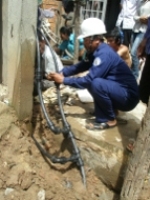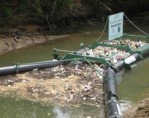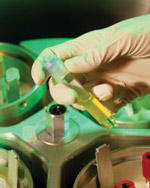
United Nations' report, released right before World Environment Day, makes the economic case for repairing the natural world.

Fort Eustis, Va., uses its railroad systm to train soliders on train operations.

Group's annual report also features endangered river success stories from the past 20 years.
The Pesticides General Permit would require operators to use the lowest effective amount of pesticide, prevent leaks and spills, calibrate equipment and look for and report adverse incidents.

Since 1993, Ek Sonn Chan and his team have refurbished the supply system and introduced cost-effective billing and collection.
Funds will be used to help build fresh drinking water wells through the ClearBlue Project and Hands on the World Global Inc.
The technology turns a maintenance problem at the Nansemond plant into a commercially viable fertilizer product with no additional cost to the Hampton Roads Sanitation District.
The National Oceanic and Atmospheric Administration contracted C&C Technologies to conduct a magnetometer survey of a proposed alternate anchorage site near the mouth of the Mississippi River, where ships can wait until their hulls are inspected.
Research provides insight into conditions needed to produce nitrogen fixation.

City takes out ARRA-funded loan to help stop trash from polluting the Satilla River.

A triple blind groundwater sampling event shows that the environment is a very complex system that may not lend itself to simple explanation.
- By Samuel W. Butcher, Lauren M. McKinlay

A green commitment delivers clean, reliable, cost-saving power to American Water.
Clean Vessel Act grants help marinas manage wastes and protect recreational waterways.
Wholesaler says efforts must continue to reach 20 percent by 2020.
The company will create habitat for out-migrating juvenile salmon in the Duwamish River and repay $2 million of the natural resource trustee's costs to resolve liability for hazardous releases from its facilities.

Scientist says the technology would reduce the cost of long-term monitoring of contaminants in groundwater by up to 80 percent.
The Puerto Rico Aqueduct and Sewer Authority also will pay a $1 million civil penalty and spend an additional $2.5 million to improve lake water quality.